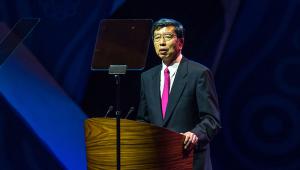Tripoli-Libya-shutterstock_42874129.jpg

Tripoli, Libya
It is hoped that the deal will end five years of instability in the country that began with the uprising against Muammar Gaddafi.
Martin Kobler, the secretary general’s special representative and head of the UN support mission in Libya (UNSMIL), said the signing marked a “historic day for Libya”.
“After a period of political divisions and conflict, Libya is restarting its political transition. The agreement puts in place a single set of legitimate institutions – essential building blocks towards a peaceful, secure and prosperous Libya,” he said.
The agreement was signed by the General National Congress, the rebel government that seized power in Tripoli in 2014, and the House of Representatives, the internationally-recognised parliament that is now based further east in Torbruk after being elected in 2014. The unified, power-sharing government will be overseen by a nine-strong presidency.
Members of the international community worldwide, including US secretary of state John Kerry, UK prime minister David Cameron and UN general secretary Ban Ki-Moon, have released statements welcoming the deal.
Kobler acknowledged that the agreement represented “the beginning of a difficult journey”, adding that the “door remains wide open” to those who did not participate in the dialogue this time.
The deal was needed to address the dire humanitarian situation in areas like Benghazi and the critical need for national reconciliation and an inclusive national security dialogue, he added.
It is also hoped the agreement will help to bolster the fight against ISIS in Libya, which has been advancing unhindered as parties concentrate on fighting each other.
“Urgent solutions must be found to bolster the Libyan-led fight against terrorism and in particular the threat of Daesh,” Kobler said.
The national unity government was proposed by the previous UN Libya envoy Bernardino Leon in October, but the deal had until now been delayed as parties refused to sign off. However, some key players have called the deal illegitimate and there are fears factions of both rival government could undermine power-sharing.













